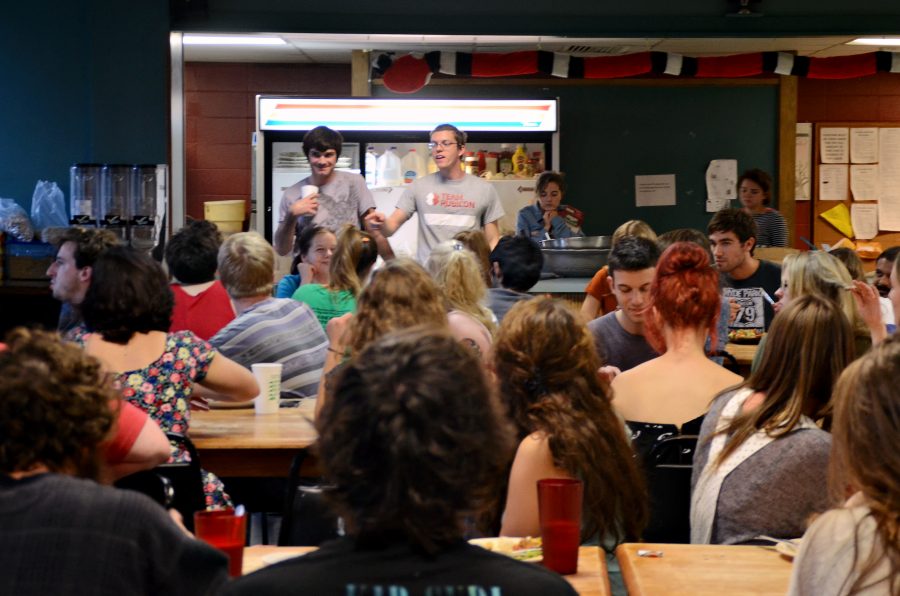With the rise of apartment prices in West Campus, co-op housing has become a more popular option for student living.
Most co-ops charge significantly less in rent than the West Campus apartments that neighbor them. Newer complexes in West Campus have been increasing rates by six to seven percent each year for the past 10 years, according to Richie Gill, real estate broker at LonghornLeasing.com. Living in a two bedroom/two bathroom apartment at 2400 Nueces starts at $1019 for the 2014-2015 academic year. In contrast, College Houses, a non-profit operator of co-op houses in West Campus, provides residents with meals and utilities — charging them only $742 for a single occupancy room and $570 for a double occupancy room.
In West Campus, there are two non-profit organizations and three independent co-ops that offer cooperative housing to students. The two organizations are College Houses, which owns seven cooperatives, and Inter-cooperative Council Austin, which owns nine cooperatives. College Houses’ largest building holds 120 students, while Council Austin houses hold approximately 15-31 students.
Kim Penna, education and training coordinator at College Houses, said College Houses and the council have been 99 percent occupied for about the past five years. She said the number of applicants increased in 2008 after the recession.
“We’ve definitely seen an increase in the number of people applying per year and the number of people on our waitlist has grown dramatically,” Penna said.
The council’s facilities administrator, Billy Thogersen, said in addition to the financial benefits of living in cooperative housing, members have a voice and can make decisions about the way the houses are run.
“You are a member and you are an owner, so you have a much greater say in how the organization is run,” Thogersen said.
Students who live in cooperative housing control the way in which their co-op operates by participating in several hours of labor through cooking, cleaning kitchens or maintaing the buildings. Houses are run democratically, so students have the ability to decide where they want money to be spent and can work together to set other house rules.
Business honors sophomore Ashley Deatherage said based on the general appearance of co-ops, she probably wouldn’t consider living in one of the houses.
“College is obviously very expensive,” Deatherage said. “I understand that people have to find other living accommodations that work within their budget, so it makes sense that other people would want to live there.”
Deatherage said having to contribute several hours of work per week might be difficult as a student.
“The downside is the time commitment, but the beneficial side is learning to be a cooperative citizen and working together,” Deatherage said.
Radio-television-film junior Mark Rubin lived in Towers in the 2010-2011 academic year, but now lives in the council’s House of Commons because of the affordability and the opportunity to meet so many different people.
“It can be a culture shock, but I think everyone should entertain the idea of cooperative housing,” Rubin said.





















